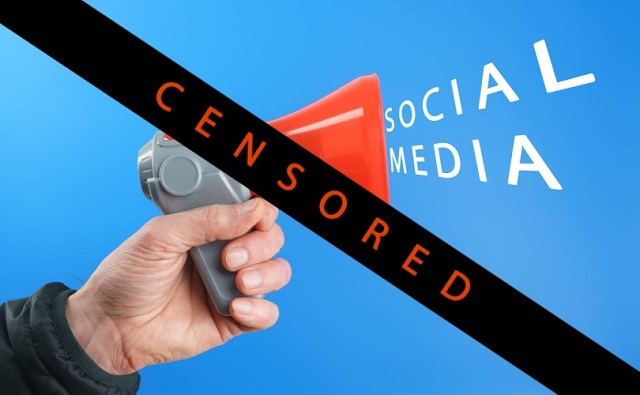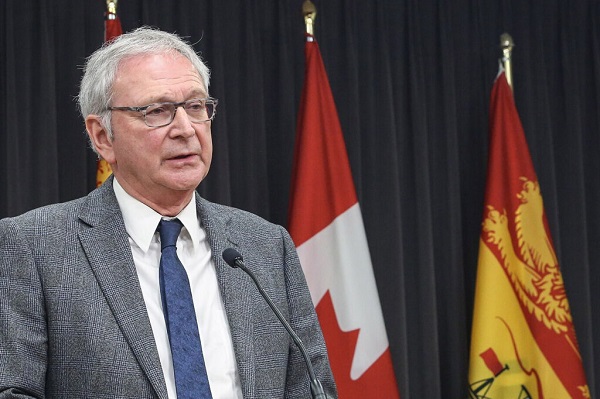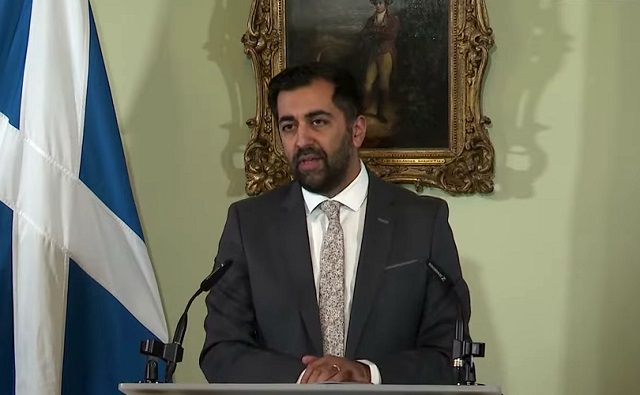Media
Most Canadians oppose internet censorship, federal report finds

From LifeSiteNews
” even those who voiced concern over potentially ‘harmful’ content on Facebook, Twitter, LinkedIn, TikTok, YouTube and Snapchat held that it ‘was the responsibility of individuals’ and not government to determine what Canadians can and cannot view. “
Most Canadians want the Trudeau government to keep its hands off access to the internet, according to a federal report.
According to information published January 3 by Blacklock’s Reporter, an in-house Privy Council report titled Continuous Qualitative Data Collection Of Canadians’ Views has found that most Canadians believe the federal government should not introduce legislation that would censor internet content.
“Discussing actions which could be taken to mitigate online misinformation and disinformation, participants stressed the role of individual responsibility,” federal government researchers wrote in the report.
According to the report, even those who voiced concern over potentially harmful content on Facebook, Twitter, LinkedIn, TikTok, YouTube and Snapchat held that it “was the responsibility of individuals” and not government to determine what Canadians can and cannot view.
The research was contracted out to Strategic Counsel, which gathered information from focus groups in Saskatchewan, Manitoba, Ontario, Québec and Atlantic Canada.
“A number were of the view it was of critical importance for Canadians to be able to leave comments and have their voices heard regarding initiatives and policies important to them,” the report stated.
According to the research, Canadians were unsure that legislation to censor internet activity was necessary, or even a good idea, explaining that they could “filter out hateful content” without the government’s intervention.
“While most believed harmful content online represented a growing concern few felt it to be a major issue at present,” the report said. “Several were of the view that individuals were typically able to avoid harmful content by blocking it or not utilizing platforms on which it was present.”
“While a few felt actions should be taken to limit the reach or prohibit harmful online content several were concerned these efforts might have the unintended consequence of impeding what they viewed as the rights of individuals to freely express themselves online,” it continued.
“Participants were asked if they were concerned about the spread of misinformation and disinformation,” the research added. “Though all participants reported feeling some degree of concern some also expressed reservations about the potential for censorship in any attempt by the federal government to prevent the proliferation of false information online.”
The research comes as Canadians are facing increased internet censorship thanks to the Liberal government under the leadership of Prime Minister Justin Trudeau.
This past June, Trudeau’s internet censorship law, Bill C-18, the Online News Act, was passed by the Senate. This law mandates that Big Tech companies pay to publish Canadian content on their platforms.
As a result, Meta, the parent company of Facebook and Instagram, blocked all access to news content in Canada, while Google agreed to pay Canadian legacy media $100 million under the new legislation.
Critics of Trudeau’s recent laws, such as tech mogul Elon Musk, have commented that the legislation shows that “Trudeau is trying to crush free speech in Canada.”
Musk made the comments after the nation’s telecommunications regulator announced that due to new powers granted to it via the Online Streaming Act, certain podcasters will now have to “register” with the government.
Just last week, the Canadian Radio-Television and Telecommunications Commission (CRTC), Canada’s official broadcast regulator, announced it might soon be producing draft rules for a pre-election “code of conduct” for newsrooms, which includes print and online journalists.
The “code of conduct” can be legally enforced thanks to a little known clause in the Online News Act. Clause, 27.1.b.iv says newsrooms that want Google money must demonstrate full compliance with a “code of ethics.” This “code” was not defined, however, and Canada has no such national code of newsroom ethics.
Censorship Industrial Complex
Elon Musk skewers Trudeau gov’t Online Harms bill as ‘insane’ for targeting speech retroactively

From LifeSiteNews
It literally spits in the face of all Western legal traditions, especially the one about only being punished if you infringed on a law that was valid at the time of committing a crime
Billionaire tech mogul Elon Musk remarked that it is “insane” that the Trudeau government’s proposed “Online Harms” bill would target internet speech retroactively if it becomes law.
“This sounds insane if accurate!” wrote Musk on Tuesday, in reply to an X (formerly Twitter) user named Camus who detailed that Prime Minister Justin Trudeau’s government’s Bill C-63, the Online Harms Act, could see Canadians fined or even jailed for things posted on the internet prior to the bill becoming law.
Camus noted how Bill C-63 could give police “the power to retroactively search the Internet for ‘hate speech’ violations and arrest offenders, even if the offence occurred before the law existed.”
A brief time later, X’s “CommunityNotes” program – a system in which users collectively “fact-check” information shared on the site –confirmed what Camus had written was accurate, quoting a section of the bill’s text.
“Part 3 of Bill C-63, which is still at first reading stage and is not yet law, adds to the Canadian Human Rights Act: ‘a person communicates or causes to be communicated hate speech so long as the hate speech remains public and the person can remove or block access to it,’” CommunityNotes wrote.
Camus observed about Bill C-63 that the “Trudeau regime has introduced an Orwellian new law.”
“This new bill is aimed at safeguarding the masses from so-called ‘hate speech,’” he wrote. “The real shocker in this bill is the alarming retroactive aspect. Essentially, whatever you’ve said in the past can now be weaponized against you by today’s draconian standards.”
Camus observed how historian Dr. Muriel Blaive has weighed in on “this draconian law,” labeling it outright “mad.”
“She points out how it literally spits in the face of all Western legal traditions, especially the one about only being punished if you infringed on a law that was valid at the time of committing a crime,” wrote Camus.
Bill C-63 was introduced by Liberal Minster Attorney General Arif Virani on February 26 and was immediately blasted by constitutional experts as troublesome.
The bill, if passed, will modify existing laws, amend the Criminal Code as well as the Canadian Human Rights Act, in what the Liberals claim will target certain cases of internet content removal, notably those involving child sexual abuse and pornography.
However, the bill also seeks to police “hate” speech online with broad definitions, severe penalties, and dubious tactics.
Trudeau’s new bill a ‘terrible attack’ on speech, Musk warns
On Tuesday, well-known Canadian psychologist Jordan Peterson replied to Musk by saying about Bill C-63, “It’s much much worse than you have been informed: plans to shackle Canadians electronically if accusers fear a ‘hate crime’ might (might) be committed.”
“It’s the most Orwellian piece of legislation ever promoted in the West.”
Musk replied to Peterson by saying Bill C-63 is “[a] terrible attack on the rights of Canadians to speak freely!”
Other notable X users, such as Canadian lawyer David Freiheit, who is known online as Viva Frei, confirmed Musk’s concern that Bill C-63 could go after X users from posts/tweets made long ago.
“It’s pretty close to accurate, Elon. If someone has the ability to delete a ‘hate speech’ tweet / post and does not, and someone else retweets that tweet, it would qualify as ‘publication’ under the law and be sanctionable,” he wrote.
Details of the new legislation to regulate the internet show the bill could lead to more people jailed for life for “hate crimes” or fined $50,000 and jailed for posts that the government defines as “hate speech” based on gender, race, or other categories.
The bill also calls for the creation of a digital safety commission, a digital safety ombudsperson, and a digital safety office.
The Justice Centre for Constitutional Freedoms (JCCF) has said Bill C-63 is “the most serious threat to free expression in Canada in generations. This terrible federal legislation, Bill C -63, would empower the Canadian Human Rights Commission to prosecute Canadians over non-criminal hate speech.”
In a recent podcast, Peterson and Queen’s University law professor Bruce Pardy warned of the “totalitarian” impact Trudeau’s new Online Harms bill will have on Canada.
Peterson observed that the Trudeau government is effectively “establishing an entirely new bureaucracy” with an “unspecified range of power with non-specific purview that purports to protect children from online exploitation” but has the possibility of turning itself into an internet “policing state.”
Censorship Industrial Complex
Internet censorship laws lead a majority of Canadians to believe free speech is threatened: poll

From LifeSiteNews
In light of the barrage of new internet censorship laws being passed or brought forth by the federal government of Prime Minister Justin Trudeau, a new survey revealed that the majority of Canadians feel their freedom of speech is under attack.
According to results from a Leger survey conducted April 26-28 that sampled responses from 1,610 Canadians, 57 percent think their freedom of speech is being threatened, with 36 percent not believing this to be true.
Not surprisingly, those with conservative voting intentions, about 76 percent, were the most likely to feel that their free speech is under attack, with 70 percent of the same group as well as those over 55, feeling that Canada is not as free as before.
The survey results also show that 62 percent of Canadians think it is “tougher to voice their opinion in their country, while 27% think it is easier.”
“Conservative voters (70%) and Canadians aged 55 or older (70%) are more likely to think that it is tougher now to express their opinion,” Leger noted in its survey.
Not surprisingly, Liberal voters were the most supportive of placing limits on free speech, with 64 percent agreeing with the following: “There should be limits on freedom of speech to ensure that things such as hate speech, speeches preaching a form of intolerance, or speeches against democracy be prevented from reaching the public.”
The survey also revealed that about one of four conservative voters believe that their views are not socially acceptable.
Sixty percent of conservative voters said that free speech should never be limited in any manner and that one should be able to express their opinions publicly without issue.
Regarding their reasons for free speech being under attack, 11 percent blamed politicians causing more hate, with eight percent saying “right-wing” extremists were to blame, with seven percent blaming woke-minded thinking as the issue. Twenty-nine percent of Canadians felt that a growing lack of respect is to blame, and 13 percent thought it is due to “a degradation of the moral fibre in the country.”
A bit concerningly, only six of 10 Canadians have confidence that the next federal election, scheduled for 2025, will be “free and fair,” with 29 percent saying outright they are “not confident.”
When it comes to internet censorship laws, the most recent one introduced in the House of Commons is a federal government bill that could lead to large fines or jail time for vaguely defined online “hate speech” infractions under Liberal Minster Attorney General Arif Virani’s Bill C-63, or Online Harms Act.
LifeSiteNews recently reported how well-known Canadian psychologist Jordan Peterson and Queen’s University law professor Bruce Pardy blasted Trudeau and his government over Bill C-63.
Peterson noted that in his view, Bill C-63 is “designed … to produce a more general regime for online policing.”
“To me, that’s what it looks like,” he said.
Two other Trudeau bills dealing with freedom on the internet have become law, the first being Bill C-11 or the Online Streaming Act that mandates Canada’s broadcast regulator, the Canadian Radio-television and Telecommunications Commission (CRTC), oversee regulating online content on platforms such as YouTube and Netflix to ensure that such platforms are promoting content in accordance with a variety of its guidelines.
Trudeau’s other internet censorship law, the Online News Act, was passed by the Senate in June 2023.
The law mandates that Big Tech companies pay to publish Canadian content on their platforms. As a result, Meta, the parent company of Facebook and Instagram, blocked all access to news content in Canada. Google has promised to do the same rather than pay the fees laid out in the new legislation.
Critics of recent laws such as tech mogul Elon Musk have said it shows “Trudeau is trying to crush free speech in Canada.”
-

 Addictions1 day ago
Addictions1 day agoPoilievre attacks decriminalization of hard drugs with Safe Hospitals Act
-

 Uncategorized1 day ago
Uncategorized1 day agoRCMP recruitment failure has Alberta advocacy group calling for Provincial Police Service
-

 Health1 day ago
Health1 day agoPrivate Footage Reveals Leading Medical Org’s Efforts To ‘Normalize’ Gender Ideology
-

 Alberta1 day ago
Alberta1 day agoRed Deer Hospital Lottery – Second Chance Early Bird Prize!!!
-

 armed forces1 day ago
armed forces1 day agoTrudeau government has spent $10 million promoting DEI in the military as recruitment flounders
-

 illegal immigration2 days ago
illegal immigration2 days agoPanama’s Incoming President Wants To Shut Down His Country’s Most Treacherous Route For Migrants — But Will It Work?
-

 COVID-191 day ago
COVID-191 day agoMore victories for freedom as ArriveCAN charges dropped and fines reduced
-

 City of Red Deer2 days ago
City of Red Deer2 days agoCity Council paving the way for more house suites, backyard suites, tiny homes, and duplexes







